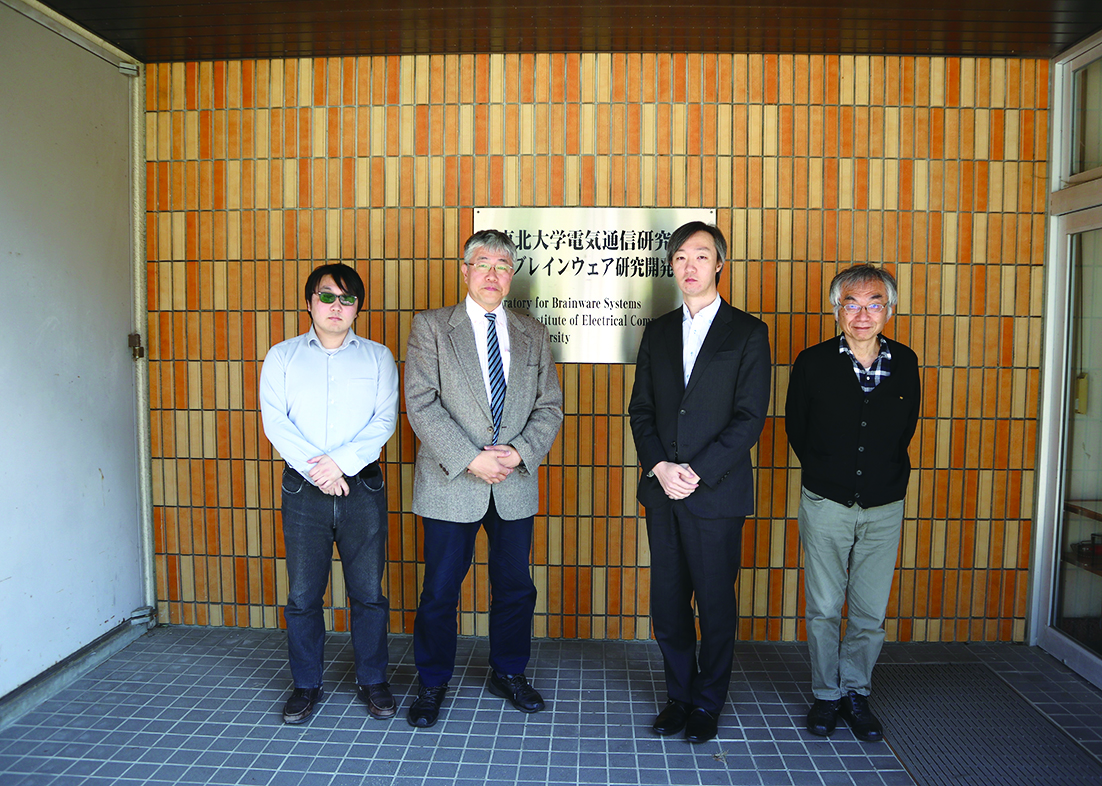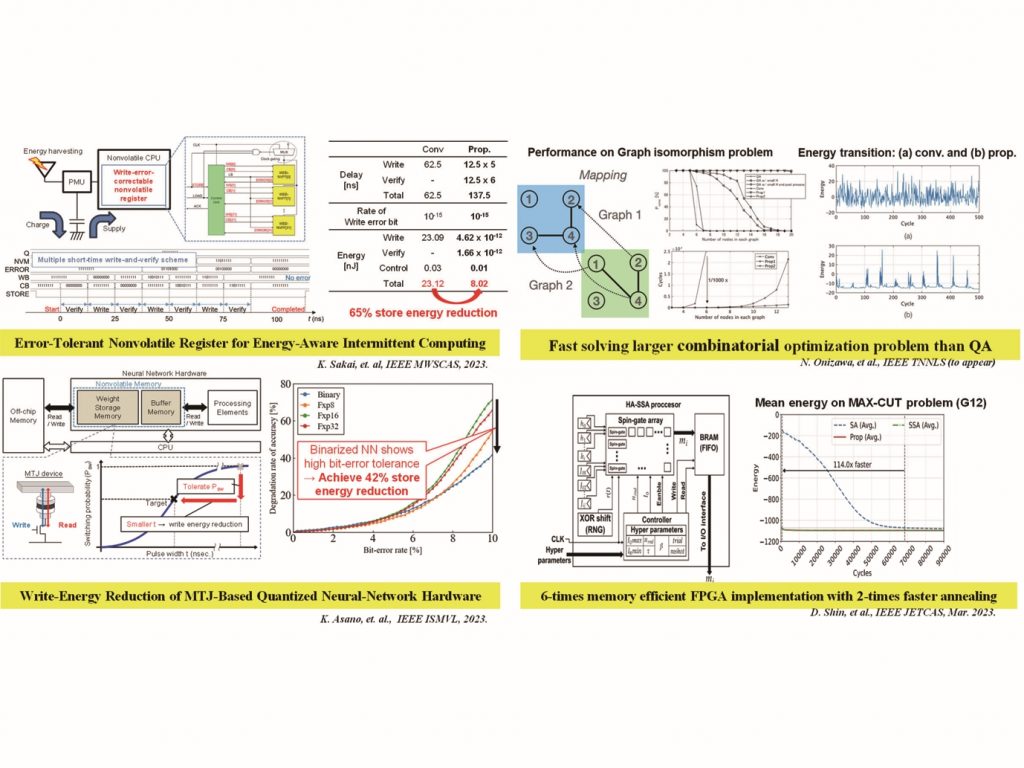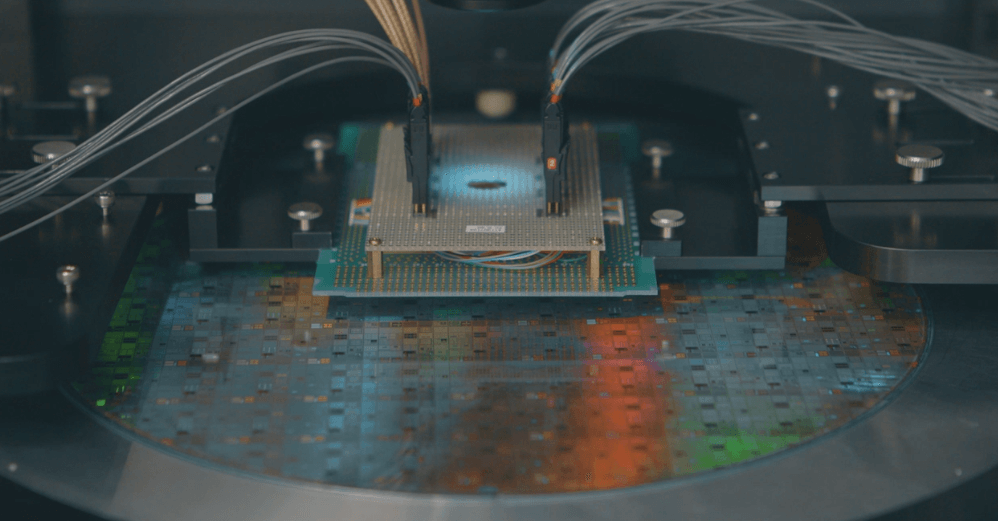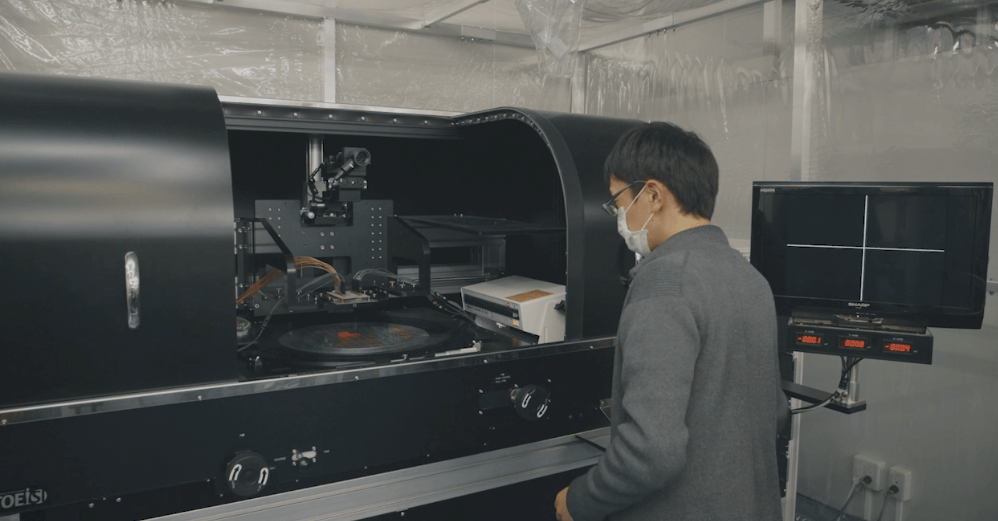- >> Computing System Platforms Division
-
New Paradigm VLSI System
Researcher

- [Professor]
Takahiro Hanyu - [Associate Professor]
Masanori Natsui - [Associate Professor]
Naoya Onizawa - [Research Fellow]
Akira Tamakoshi
Group Web Site
http://www.ngc.riec.tohoku.ac.jp/en/index.html
Research Activities
Very Large-Scaled Integrated (VLSI) processors are key components as a “brain” for intelligent control in the future super smart society (society5.0). In this research division, we explore a path towards a new paradigm VLSI processor beyond brain utilizing novel device technologies and new-paradigm circuit architecture. In particular, we are focusing on “Logic-in-memory architecture” (where storage elements are distributed over a logic-circuit plane) together with functional and nonvolatile devices such as spintronics, PVT-variation-aware VLSI architecture, self-adaptive system for resilient VLSI, brain-inspired optimization algorithm and its application to VLSI design methodology, electronic design automation (EDA) algorithms for Nonvolatile logic-in-memory VLSI, energy-efficient hardware algorithms based on stochastic computing and develoing invertible-logic algorithm and hardware, which can realize bidirectional computing for solving several critical issues, such as machine learning.
New Paradigm VLSI System(Prof. Hanyu)
Research topics
- Nonvolatile logic-in-memory VLSI architecture and its application to ultra-low-power VLSI processors
- Device-model-based new-paradigm VLSI computing architecture
- Asynchronous-control/multiple-valued data representation-based circuit for a high-performance Network-on-Chip
- Low-power VLSI design technology based on stochastic logic
We are studying a “new-paradigm VLSI computing” concept that breaks through conventional computational and power walls. “Logic-in-memory architecture,” where storage elements are distributed over a logic-circuit plane, is a key concept to open up the future VLSI. To implement a logic-in-memory architecture, we use functional and nonvolatile devices such as spintronics.
New Paradigm VLSI Design (Assoc. Prof. Natsui)
Research topics
- PVT-variation-aware VLSI architecture and its applications
- Self-adaptive system for resilient VLSI
- Optimization algorithm and its application to VLSI design methodology
- EDA/CAD algorithms for new paradigm VLSI systems
We are studying a new VLSI design paradigm for high performance and highly-dependable VLSIs. To fully utilize the benefits of technology scaling, we are focusing on PVT-variation-aware VLSI architecture, self-adaptive system for resilient VLSI, brain-like optimization algorithm and its application to VLSI design methodology, and electronic design automation (EDA) algorithms for Nonvolatile logic-in-memory VLSI.
New Paradigm VLSI Computing (Assoc.Prof. Onizawa)
Research topics
- Energy-efficient hardware algorithm based on probabilistic computing
- New-paradigm computing technique based on CMOS invertible logic
- Brainware information-processing hardware based on stochastic computing
- Ultra-low power hardware based on asynchronous circuits
We are studying probabilistic computing that is clearly different from conventional deterministic computing. We are implementing energy-efficient hardware algorithms based on stochastic computing and developing invertible-logic algorithm and hardware, which can realize bidirectional computing for solving several critical issues, such as machine learning.





